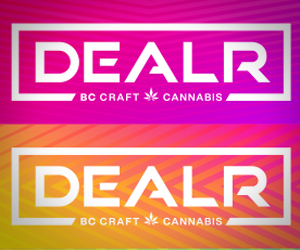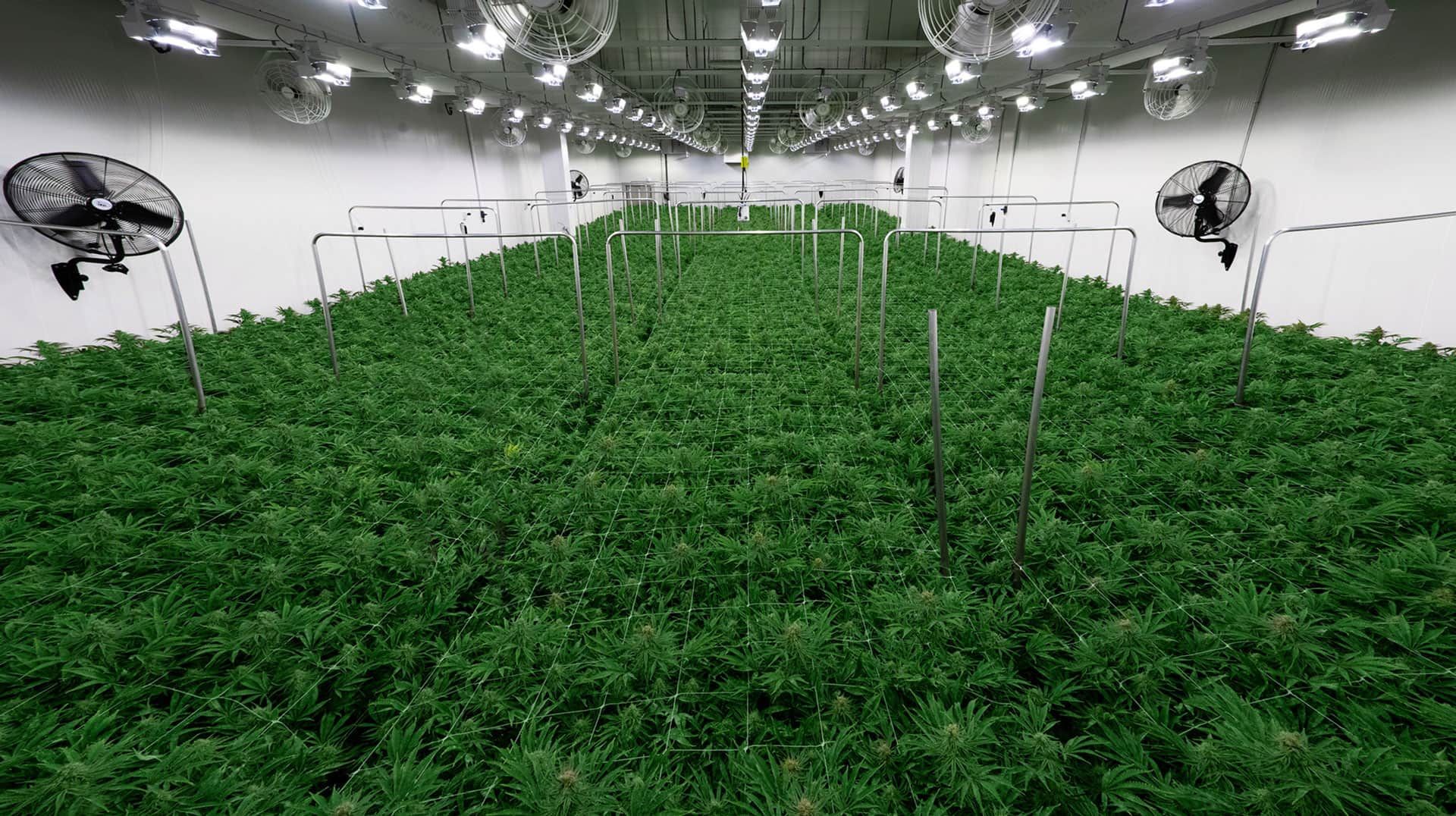
As some markets are saturated with bricks-and-mortar outlets and intense price competition, retail cannabis is feeling the squeeze.
“The retailers – and unfortunately their staff – are the pointy end of the stick,” says Ross Hendry, Head of Sales & Marketing at Wagners (Stylized as WAGNERS) and Highland Grow. “They’re the last touch point to the consumer, and so they are feeling it as much, if not more, than anyone in the industry.”
An unfair situation in BC?
A government’s power of taxation can create an odd scenario wherein the table can be tilted against free-market competition. In BC, in addition to the excise tax, GST, and PST, the BC Liquor Distribution Board (BCLDB) adds another 15% markup.
“It is the taxes—including the 20% BC vape tax—that are my biggest concern,” says Andrea Dobbs, Managing director at Village Bloomery in Vancouver. “The BCLDB marks up 15% for its wholesale price, and then they mark up anywhere from 15-30% for their retail,”
Dobbs recently had to close a store in Victoria, on Vancouver Island.
“There are at least 30 dispensaries in Victoria serving a population of 95,000, which is way above the State of Colorado’s suggested ratio of one shop per 10 to 15,000 people,” she says. “As it stands, in Vancouver we are profitable, pay a living wage, and can keep our store properly staffed. We see stores that have only one person on staff due to limited resources, which is very concerning.”
The Village Bloomery has a big chain outlet, Fire and Flower, close to its location in Vancouver. Dobbs says she can compete well enough due to the knowledge and experience of her budtenders, as well as the Village Bloomery’s highly-curated inventory—something that can be lacking in big chains. However, competing directly with the government presents unique challenges.
“It’s uncommon to have a wholesaler compete directly against you,” she says. “I have worked in retail clothing, for example, where you usually sell for a decent price – the manufacturer’s suggested retail price – and then if it doesn’t move you can clear it at a loss. But that’s not the case with cannabis in BC. There are all kinds of powers at the wholesale level that they have, and we don’t. I wish they would just pick one: be wholesale, or be retail.”
Dobbs is not alone in her concerns.
“It’s difficult to compete with the government when we have to buy from the same source that supplies BC Cannabis Stores with the full inventory of products available in the province,” says Dennis Park, Founder at Craft Greenery Cannabis in Vancouver.
Park and his business partner Mark Okoth say that they have seen a lot of cases where BC Cannabis Stores (BCCS) are able to retail SKUs at much lower prices than independent retailers. They would like to have the excise tax associated with participants of the direct sales program cut, and a level playing field.
“There should be no relevant operational and commercial differences between provincial run and compliant, permitted independents,” says Park. “We’d like to see independent distribution without arbitrary and illogical limits on capacity or volume of throughput.”
“BC Cannabis Stores pricing has been driving the race to the bottom on cannabis products. They are setting unreasonable expectations for the consuming public.”
Jaclynn Pehota, Executive Director at The Retail Cannabis Council of BC (RCC-BC).
Retailers contacted for this story don’t believe that government stores in BC are being directly subsidized. However, as a branch of government tied to legislated monopoly, the BCLDB’s control over wholesale margins, access to commercial real estate, and ability to operate at reduced overall profitability, results in an endeavour that is likely not competitive or profitable in an open market.
“The pricing matrix for the BC Cannabis Stores is such that it’s difficult to compete, given that we purchase our inventory from the same government entity that we’re competing against at the retail level,” says Ehren Richardson, the co-owner of Sunrise Cannabis in Vancouver.
“We’ve been serving East Vancouver for seven years now, and it’s more difficult than ever to pay living wages, particularly when a government store four times the size of ours moves into the neighbourhood with a bigger menu and unsustainable prices.”
Richardson has submitted a complaint to the Competition Bureau, in which he presented numerous examples of identical products that are being sold wholesale by the BCLDB, and retail at BCCS outlets, but for prices that are either identical or with marginal markups.
“If you look at Oregon, Washington and Colorado, BC’s Cannabis industry should not be operating at a loss, particularly in its fourth fiscal year of legalization,” says Richardson. “Taxpayers should take notice of what’s happening.”
For its part, The BCLDB says BCCS aims for minimum margins of 23-25 percent for pre-roll and flower but admits that other products can be priced lower to clear inventory.
BC recently announced that it will allow producers to ship products directly to BC retailers, with the retailers then able to deliver those products to consumers. Taxation issues aside, this may provide some relief, but the continued build-out of large-footprint BC Cannabis Stores still has Richardson worried.
“We are thankful for the community that has supported us over the years,” he says, “but this trend of expanding BC Cannabis Stores is devaluing the cannabis coming to market and making it harder on everyone within the supply chain – cultivators, manufacturers, retailers – to justify quality product and service to the consumer.”
“When we opened there were under a hundred cannabis stores in Alberta. Now there are almost 200 in Calgary alone – including four discount outlets within ten minutes of me.”
Will Forseth, owner of Peak Cannabis in Calgary, which closed in July
On February 22, 2018, then Minister of Justice and Solicitor General for Alberta, Kathleen Ganley, addressed this issue directly at a cannabis retailer’s telephone town hall.
“The AGLC (Alberta Gaming, Liquor & Cannabis ) will be empowered to react to market issues such as price manipulation by setting minimum prices as necessary,” said Ganley. “The pricing of cannabis needs to strike the right balance between combatting the illegal market and preventing monopolies in the legal retail market.”
For some retailers in BC, that scale appears to have been weighted in the government’s favour.
“It remains a fact that the BC Cannabis Stores pricing has been driving the race to the bottom on cannabis products,” says Jaclynn Pehota, Executive Director at the Retail Cannabis Council of BC (RCC-BC). “They are setting unreasonable expectations for the consuming public.”
Big chains apply pressure in Ontario and Alberta
The big chains, perhaps aware of the difficulty in competing with the BC Cannabis Stores, have a bigger presence in Alberta and Ontario, where they too are able to deploy deep pockets to put pressure on smaller retailers.
“We will see more stores close,” says Will Forseth, the owner of Peak Cannabis in Calgary, which closed in July. “When we opened there were under a hundred cannabis stores in Alberta. Now there are almost 200 in Calgary alone – including four discount outlets within ten minutes of me.”
For Forseth, his reasons for closing included a desire to spend more time with family. However, a cumbersome rollout by Alberta Gaming, Liquor & Cannabis (AGLC), combined with the ongoing pressure on margins, made it difficult to continue.
“We were doing our best to operate at margins around 25%, and modulating to be competitive on higher profile SKUs and new stuff,” he says. “But then we would have to charge less to compete with the value chains, which could have margins as low as 8 or 10 percent.”
It’s a similar story in Ontario.
“We are trying to stay competitive on pricing, but the big chains make it challenging,” says Brandon Hartmann of Circa 1818 in Cobourg, Ontario. “One concern of ours is that some big chains are also in the data business, and the LPs will pay big money for that. A big chain retail store could then theoretically sell with lower margins, given that there is support from this other line of business.”
“The OCS has a large selection of inventory, and with the flow-through program it allows everyone to sell a little differently. Here in Cobourg it also works because, so far, people have been respectful of pricing, with plenty of product differentiation and no undercutting. There is no race to the bottom here.”
Brandon Hartmann of Circa 1818
The value of data is undeniable. For example, the recent case of data misappropriation from the Ontario Cannabis Store (OCS), which included ranked sales for every retail outlet in the province, is subject to a criminal investigation.
“We hope the OCS investigation goes somewhere,” says Hartmann. “After the breach, we saw a change in the industry, in that we got all kinds of attention as an ‘A-level’ store. Whoever distributed that information – there should be huge implications.”
Given the forces aligned against small retailers, it is essential to compete in other areas where larger chains struggle. As in any retail environment, the success of an independent operator is largely dependent on customer loyalty, the quality of the service, and the competence and well-being of staff.
“People love to come to the store to chat with the owner, and to see the same faces,” says Hartmann. “I will personally deliver orders in 20 to 40 minutes.”
As well, Hartmann believes that the OCS flow-through program could be a big help to smaller retailers.
“The OCS has a large selection of inventory, and with the flow-through program it allows everyone to sell a little differently,” he says. “Here in Cobourg it also works because, so far, people have been respectful of pricing, with plenty of product differentiation and no undercutting. There is no race to the bottom here.”
This is good news and suggests that, as so many hope, there really is room for everyone, even with pricing pressure. Unfortunately, even some of the most experienced retailers – such as Village Bloomery in Victoria (BC), and Peak in Calgary (AB) – have had to close their doors.
“We had great staff – all of them consumed, and knew their stuff,” says Forseth from Peak Cannabis in Calgary. “But we are now living in a world where people don’t just want to save money, they need to save money.”












